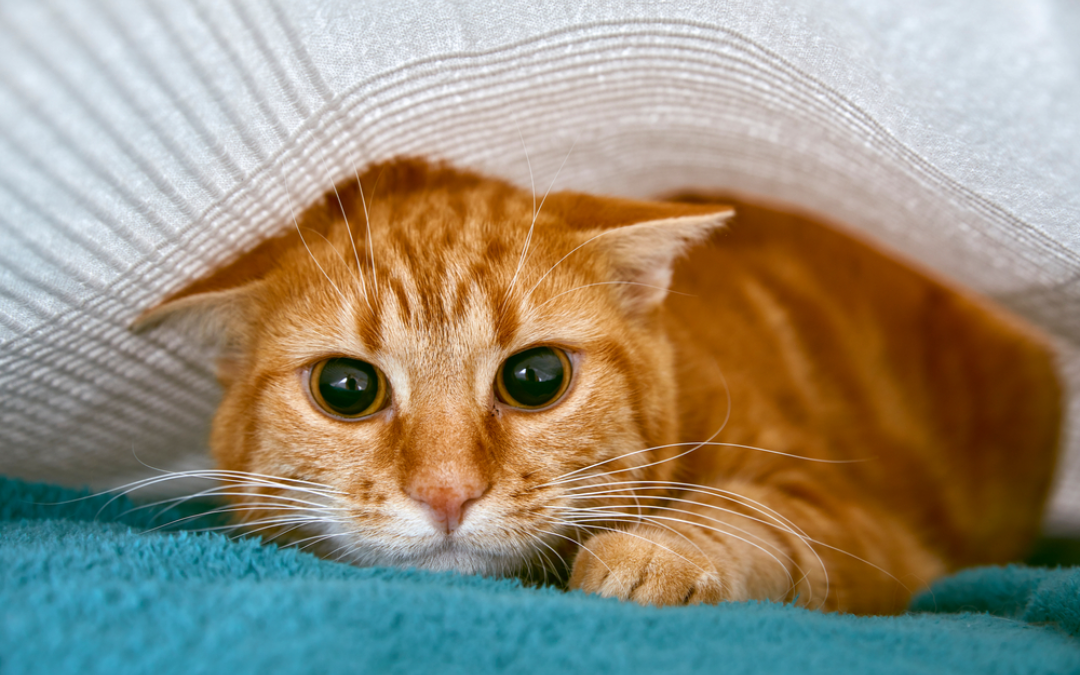Cats are creatures unlike any other. Their everyday behavior can make even a feline expert scratch their heads in confusion and disbelief. A cat may just be shy or a cat’s fears and phobias can produce unusual behavior. It may be difficult to tell if your cat’s behavior is normal or indicative of either mild or more severe fears and phobias.
There are certain traits that cat owners can look out for to determine if their kitty is feeling scared or uncomfortable. These behaviors can tell you if you have a true scaredy cat on your hands.
Mild Cat Fears and Phobia Reactions
Just like humans, cats can feel anxious from time to time. Anything from a loud noise to an unexpected visitor can instigate a small amount of anxiety, and it should pass easily. Cats have superior instincts, so they might sometimes feel anxiety from something you cannot see or hear.
If they have a mild bout of anxiety, you might notice:
- Excessive pacing
- Refusal to eat
- Increased vocalization
- Hyper alertness
- Shaking
- Salivating
- Increased grooming
- Avoiding eye contact
- Keeping the tail close to the body
- Very slight flicking of the tail
- Mildly dilated pupils
If you continue to notice signs of anxiety after a prolonged period of time, you should schedule a wellness visit so your veterinarian can see if there is a bigger issue at play.
More Serious Signs of Anxiety
If your cat is feeling especially afraid, you might notice the following:
- Very dilated pupils
- Racing heartbeat
- Physically moving or attempting to hide the body
- Inability to move
- Fur standing up
- Intense staring
- Aggression
You can try to comfort your cat if you see any signs of anxiety, but you should never scold her. Punishing this behavior will only increase her adverse reaction to whatever fear or phobia is causing the anxiety. You should also avoid confining your cat into a small space, or you might make her feel even more scared.
The Truth Behind Cat Fears and Phobias
Cats can be afraid of any number of things, and sometimes it is hard to pinpoint the exact reason for your cat’s fear and phobia reactions. Your cat could have experienced a trauma early in life, they might have separation anxiety, or they might even be ill. Talk to your veterinarian about your cat’s behavioral changes. The doctor will do a complete exam to try to determine the cause of the anxiety.
In certain cases, they might prescribe medication to help calm your cat down so he can return to his normal personality. In other instances, they might recommend behavior modification like desensitization. Working closely with a veterinary team will ensure that you do the best for your scaredy cat to help him conquer his fears and return to exploring the world around him.
Union Lake Veterinary Hospital is here to help you with all your cat questions and concerns. Our dedicated team is determined to help you give your pets the best life possible, and we want your pets to be both happy and healthy. To learn more, please call 248-363-1508.

